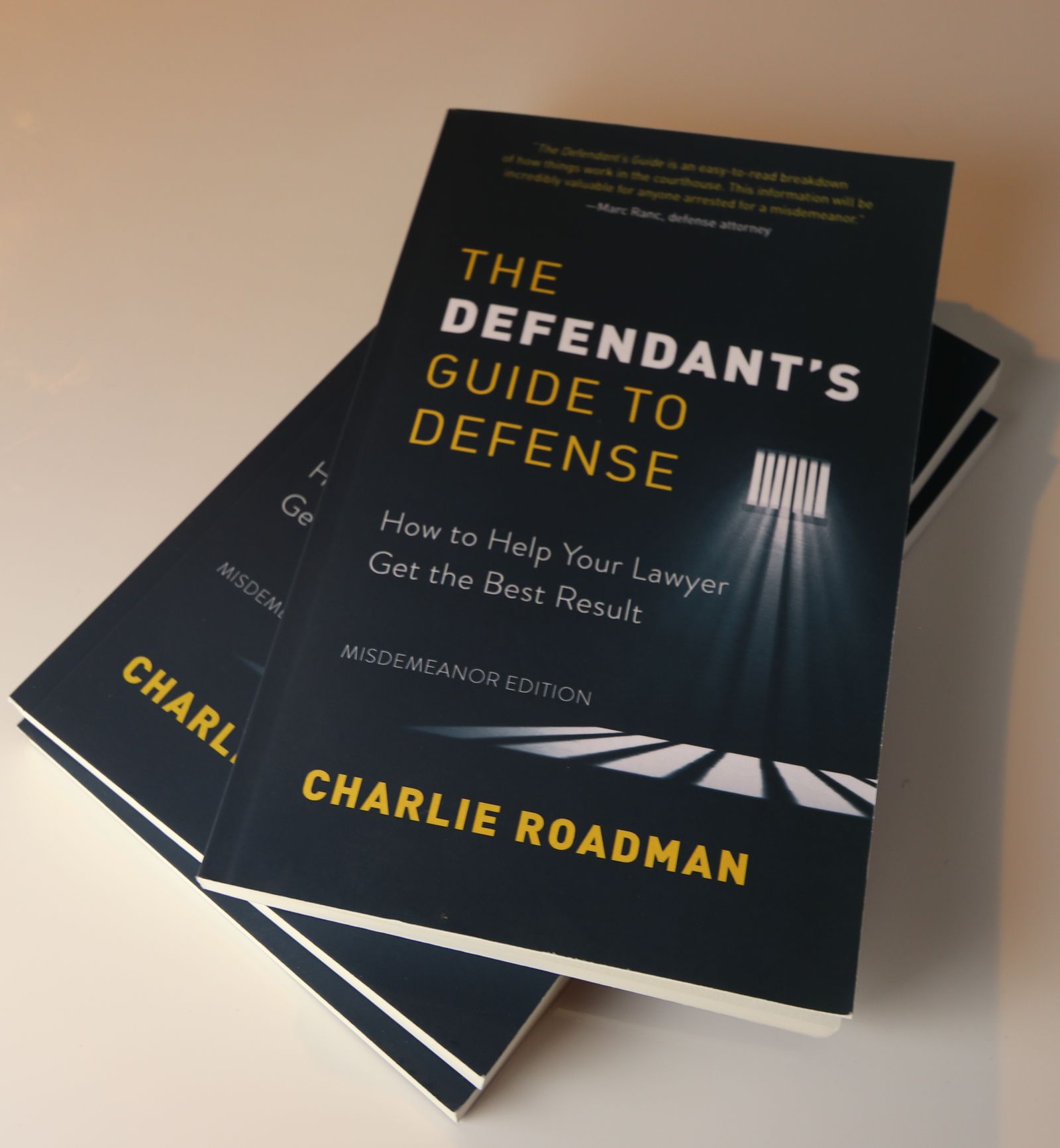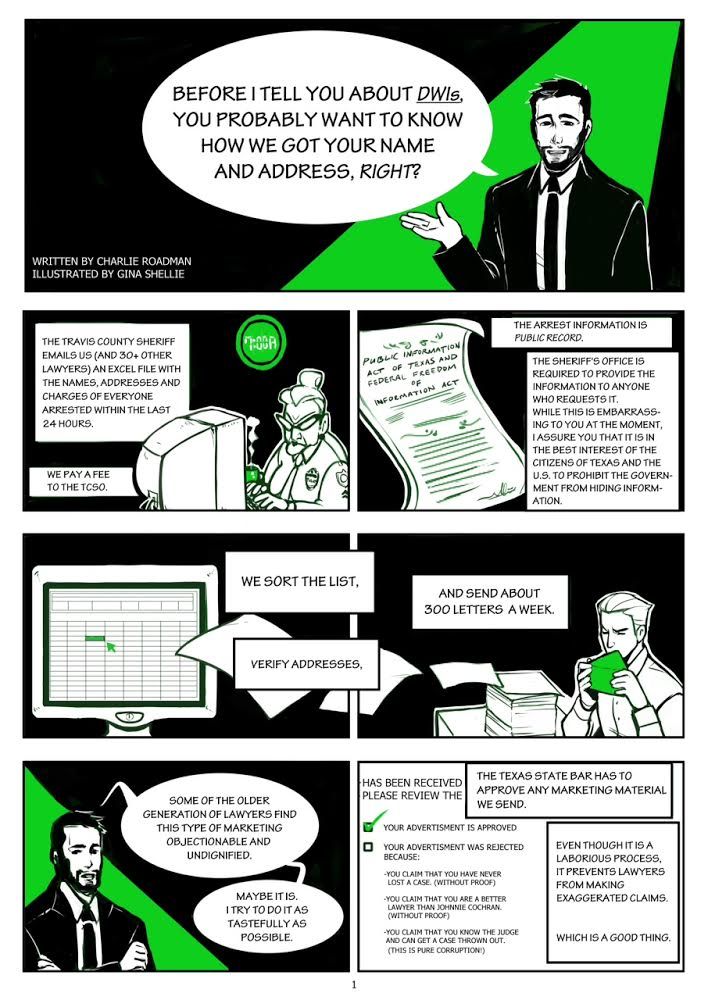Portable Breath Test
Welcome to Austin DWI charges with Charlie Roadman, Austin criminal defense attorney.
Charlie Roadman:
All right, Charlie Roadman here, Austin defense attorney. I'm with my colleague, Courtney Cobelle. She is also a defense attorney. We've been working together, how many years? 12 years?
Courtney Cobelle:
Yeah. 12 in December.
Charlie Roadman:
12 in December. Okay. So Courtney and I have a lot of experience working together, and this is a relationship that we have where we ask each other questions all day long every day. And I think the two of us together, it's kind of a synergy so that we get the right answer on a lot of things. Wouldn't you agree?
Courtney Cobelle:
Yes, I do agree.
Charlie Roadman:
Okay. So what I want to talk about today is the portable breath test device that, if I'm remembering right, it probably sort of started appearing in a DWI case about 10 years ago maybe?
Courtney Cobelle:
It's pretty much been around since I've been around.
Charlie Roadman:
Okay.
Courtney Cobelle:
12 years or so.
Charlie Roadman:
And it was in the news when they started these devices, and the portable breath test, it's a handheld device that APD, almost all of them have now. So when they do a DWI arrest, at the scene, they will ask people to blow in this portable breath test device and it's little handheld and...
Courtney Cobelle:
They will give a number of reasons or things that this device does that may or may not be true.
Charlie Roadman:
Yeah. They're a little tricky about it. I've started cataloging all the ways they're deceptive to people, right?
Courtney Cobelle:
Yes.
Charlie Roadman:
And so the number one thing they'll say is that, "This won't be used against you in court." Okay?
Courtney Cobelle:
Yes.
Charlie Roadman:
And is that true?
Courtney Cobelle:
Kind of.
Charlie Roadman:
So one of the most common excuses that they give or reasons they try to get people to blow in this device at the scene is that it's not going to be used against them in court. Is that correct?
Courtney Cobelle:
Kind of. It would not be admissible against you in a trial, but the prosecutor is definitely going to see it on the paperwork.
Charlie Roadman:
Right. The prosecutor and even the judge in the PC affidavit, and so it shows up. So everybody that's working on the case will see that. The only scenario where someone doesn't is if you have an actual jury trial and they would not hear about the results of that particular portable breath test.
Courtney Cobelle:
I do think the fact that you take it is still admissible though.
Charlie Roadman:
Right.
Courtney Cobelle:
So then you get into whether it actually helps. Sometimes you almost want the results to come in if they're even remotely favorable to you.
Charlie Roadman:
Right. So I think the reason that they started using this portable breath test was people were complaining that they were getting arrested and they were innocent.
Courtney Cobelle:
Without any chance to exonerate themselves on scene.
Charlie Roadman:
Right. Because before, the police didn't have any quantified number of the blood alcohol content so it was their opinion. And so they'd take you to the station and ask you to do a breath test, the Intoxilyzer, the official device that is admissible in court to a jury. But if you blew under there, they didn't unarrest you. You were still arrested.
Courtney Cobelle:
Well that and how many times in 12 years have you seen somebody blow zero on the PBT and get arrested anyways because the cop just assumes you're on something undetectable, something besides alcohol?
Charlie Roadman:
Right.
Courtney Cobelle:
Whether you are or not, they'll sort that later.
Charlie Roadman:
Right.
Courtney Cobelle:
So I don't think I've ever seen somebody PBT their way out of a DWI arrest before.
Charlie Roadman:
So even if you blow on the PBT, say a 0.06, they can still arrest you. That device isn't your get out of the arrest free, no matter what your point is, no matter what you blow on there. If the officer thinks you're intoxicated-
Courtney Cobelle:
He's going to go with his gut telling him you're intoxicated.
Charlie Roadman:
Right. I always say they'll never get in trouble for arresting you, but they could get in trouble for not arresting you.
Courtney Cobelle:
Exactly.
Charlie Roadman:
Because if you drive off and there's some accident in the future or near future. So this portable breath test, basically they do the field sobriety tests typically, all the field sobriety tests. And then at the end of it they say, "Here's your opportunity to blow into this," and a lot of people say, "Sure," because they say that it's not admissible court or the other one. I always-
Courtney Cobelle:
"It just detects the presence of alcohol." That's the one I like. You're like, "I already told you I was drinking."
Charlie Roadman:
Right. And there is a functional that does detect the presence, but they are looking for that BAC number. And the device, actually we should talk about that. The device is like a $600 device. It's not something you go buy at Best Buy. They have these little portable breath test at Best Buy.
Courtney Cobelle:
Oh, it's nicer than one of those.
Charlie Roadman:
Yeah.
Courtney Cobelle:
Nicer, I guess more accurate than one of those.
Charlie Roadman:
Yeah. Right.
Courtney Cobelle:
But still not as accurate as the Intoxilyzer in the jail.
Charlie Roadman:
Right. And even then we see there are problems with that too, but this portable breath test is a real device. So one of the other excuses they have is they say, "This won't affect your driver's license." They say that real quick and of course it doesn't. That's true, but the main thing is that the prosecutor when evaluating your case will take into consideration that number of the portable breath test.
Courtney Cobelle:
Absolutely. And the judge when considering what conditions to put on your bond will also take that number into consideration.
Charlie Roadman:
Right. Now you can refuse that PBT in the same way you could refuse the Intoxilyzer at the station. There's no way they can force you to blow. They however can force you to give blood. So the PBT, you could say, "I'm not going to do that," and then at the station you could agree to it or not agree to that one. Sometimes we've had the scenario where someone blows in the portable breath test at the scene and then they get to the station and they're surprised when they ask for another one. Right?
Courtney Cobelle:
And then they refuse that one...
Charlie Roadman:
Because they said, "I blew it at the scene."
Courtney Cobelle:
"I already blew."
Charlie Roadman:
Yeah.
Courtney Cobelle:
"Why do I have to do it again?"
Charlie Roadman:
But the devices do different things or the results are different.
Courtney Cobelle:
Yeah. The consequences of them are different also.
Charlie Roadman:
Right. The Intoxilyzer at the station is admissible in a jury trial, and that will be used also in your bond conditions and things like that. Any other observations about the portable breath test device?
Courtney Cobelle:
Refuse it. Especially if you've had any amount of alcohol in your mouth recently because it'll detect mouth alcohol real bad.
Charlie Roadman:
Right. So there really are no consequences to refusing the PBT unless-
Courtney Cobelle:
They say the consequences is they're going to arrest you, but hey, guess what? They were going to arrest you anyways.
Charlie Roadman:
Yeah. I guess there's a scenario where someone spilled beer on you, so you're covered in alcohol, you smell like alcohol, but you haven't had anything to drink.
Courtney Cobelle:
I've heard this one.
Charlie Roadman:
Yeah, right.
Courtney Cobelle:
I've heard this one.
Charlie Roadman:
But in that scenario, if you've had nothing to drink, I would sure blow in the PBT and hope that they don't arrest.
Courtney Cobelle:
I wouldn't. They're going to think he's on Xanax or opioids or something.
Charlie Roadman:
Right. Well, yeah. There's not many advantages to blowing in the portable breath test at the scene.
Courtney Cobelle:
No.
Charlie Roadman:
But they almost put it in people's mouths a lot of time.
Courtney Cobelle:
Oh, they'll shove it in your face.
Charlie Roadman:
Yeah. They'll just say, "Here, just blow in this."
Courtney Cobelle:
And sometimes before you know what's happening you're like, "Oh, I'm blowing in this machine."
Charlie Roadman:
Right.
Courtney Cobelle:
Yeah.
Charlie Roadman:
And I do think people blow into it with this hope that it's going to get them out of what's coming. And I would say almost never ever, ever, ever does. All right. Okay. Thanks, Ms. Cobelle. I appreciate it.
Courtney Cobelle:
Of course.



